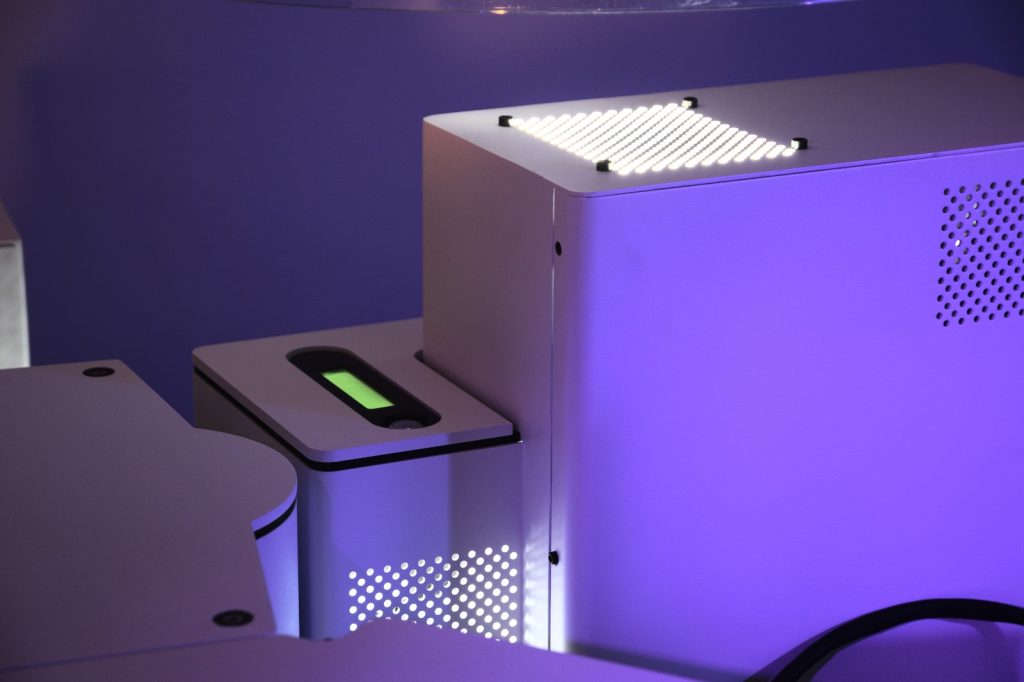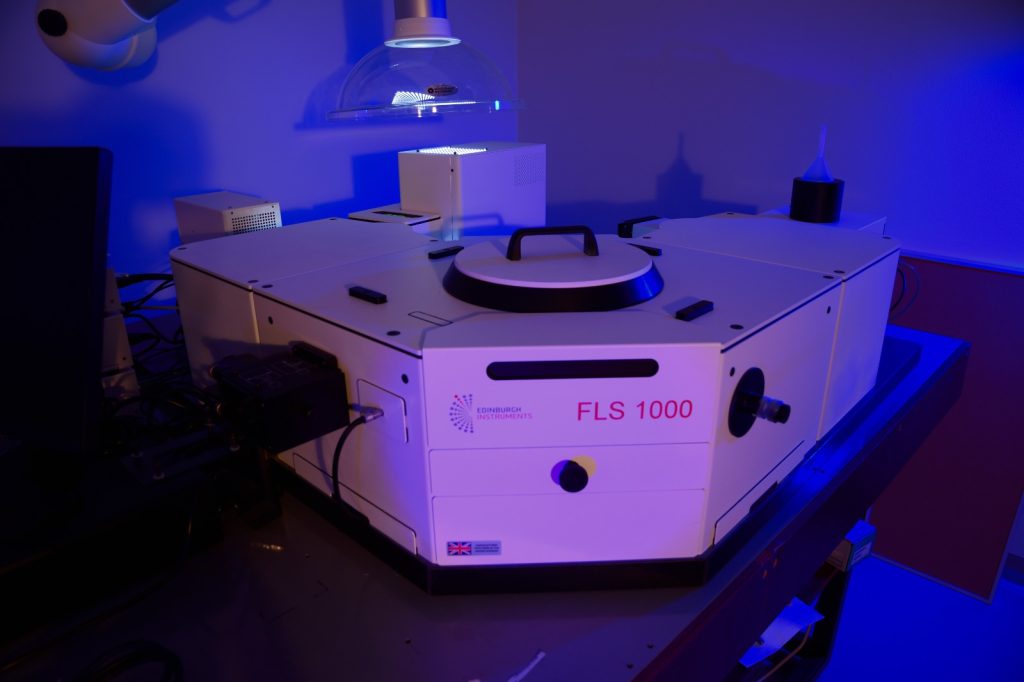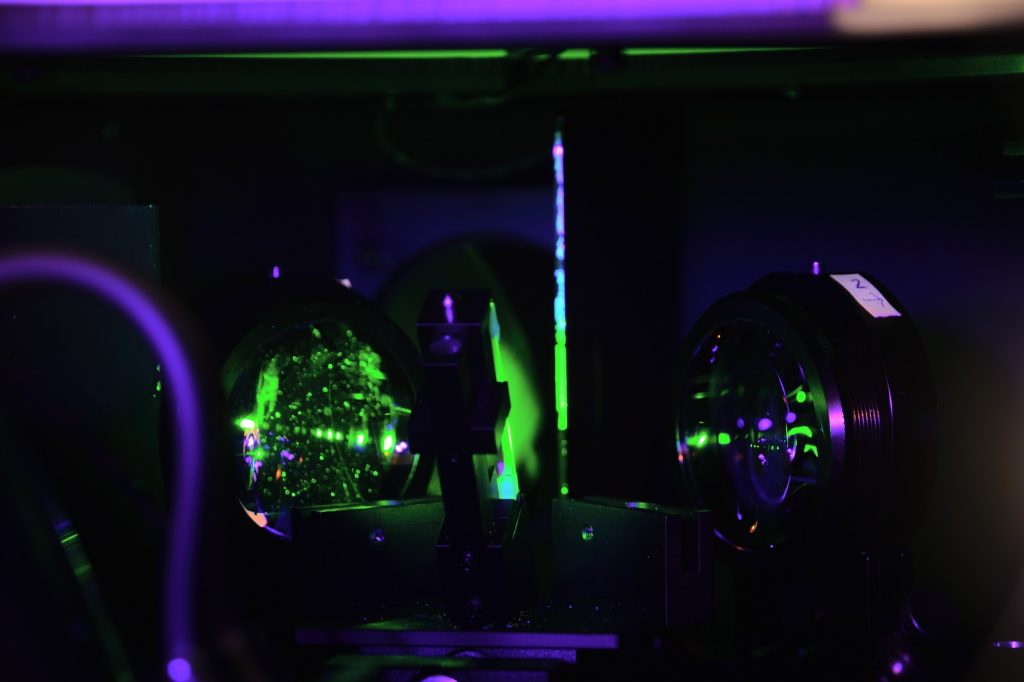Today, Mika, Sami and Natalia visited Turku University Hospital to test imaging using biocompatible photonic glass. With the help of medical physicist Heli Larjava and radiological nurse Terhi Nieminen we got very nice results.




Today, Mika, Sami and Natalia visited Turku University Hospital to test imaging using biocompatible photonic glass. With the help of medical physicist Heli Larjava and radiological nurse Terhi Nieminen we got very nice results.



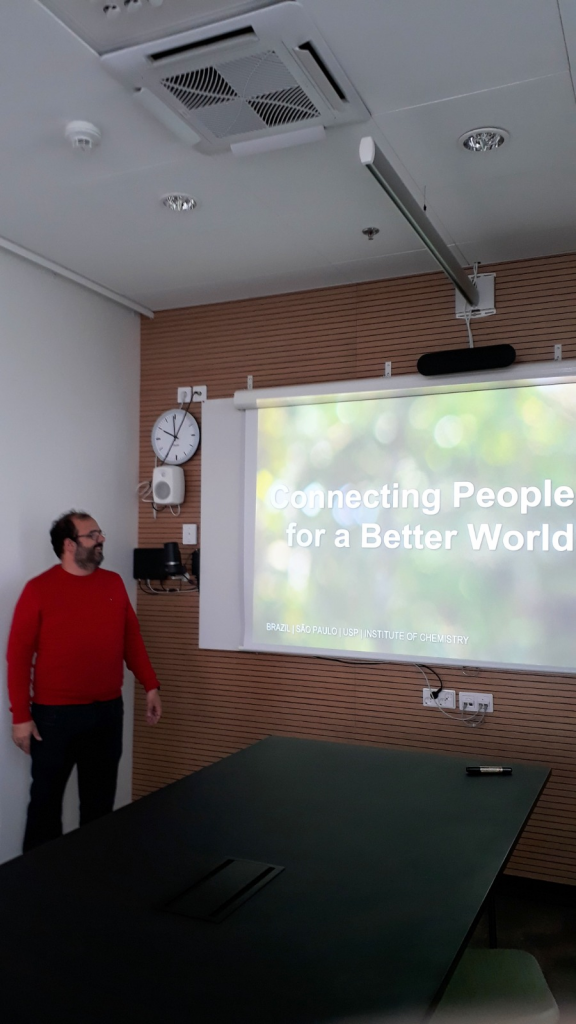
Last week, IMC alumnus and honorary member Professor Lucas Carvalho Veloso Rodrigues visited us to conduct research and promote potential student exchange opportunities between UTU and the University of São Paulo (USP), Brazil, focusing on Chemistry and Molecular Science programs. As the largest university in Latin America, USP welcomes students at all levels. Explore exchange details at bit.ly/visitUSP

From left to right: Prof. Mika Lastusaari, Dr. Minnea Tuomisto, Prof. Lucas C. V. Rodrigues, Dr. Sami Vuori

From left to right: Postdoctoral Researcher Sami Vuori, BSc students Aino Kärsämänoja and Jenni Ali-Penttilä, Aalto Distinguished Professor Maarit Karppinen, Professor Mika Lastusaari, Doctoral Researchers Amr Ghazy and Topias Jussila.
Yesterday was a nice day for IMC as we had the honor to visit Aalto University for collaboration. Doctoral Researcher Amr Ghazy (second from right) hosted the lab excursion by showing us how atomic layer deposition and molecular layer deposition are conducted at Aalto. IMC’s BSc students Aino Kärsämänoja (second from left) and Jenni Ali-Penttilä (third from left) are doing a BSc lab work that deals with these materials, so it was very useful for them to learn about this technique, just as it was for IMC’s Postdoctoral Researcher Sami Vuori (left) and Professor Mika Lastusaari (third from right). Thank you for the collaboration Amr + Doctoral Researcher Topias Jussila (right), and Aalto Distinguished Professor Maarit Karppinen (middle).
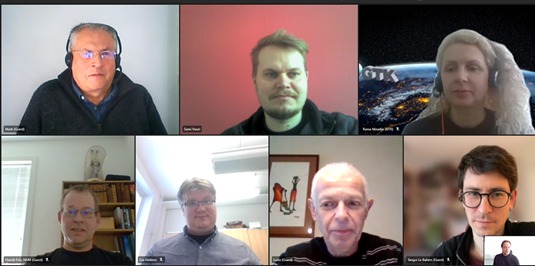
We had the first meeting of the Soda-Lights project. With Sami and Mika from IMC, we have expert collaborators Prof. Mark Weller (Cardiff, UK), Prof. Henrik Friis (Oslo, Norway), Dr. Ludo van Goethem (Antwerp, Belgium), Prof. Tangui Le Bahers (Lyon, France), Dr. Miradije Rama (Espoo, Finland) and Prof. Esa Heilimo (Turku, Finland). The project is now well on the way with interesting results to be expected.
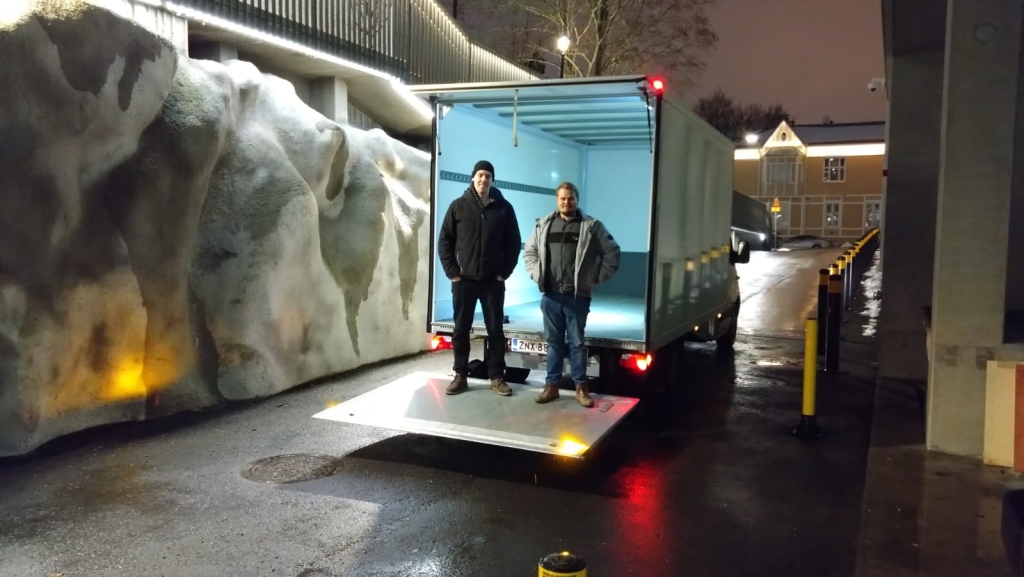
Anssi and Sami visited the University of Jyväskylä on Tuesday and Wednesday to get a single-crystal X-ray diffractometer, which we don’t have at our chemistry department. After arriving in Jyväskylä on Tuesday afternoon, all the peripherals were removed from the device and it was strapped, and on Wednesday morning Martela’s movers came to move it with a safe dolly to the van.



In Turku, Muuttohaukat’s men wheeled the device into our X-ray lab. Everything went successfully and according to plans, and right at the beginning of the year we will get it up and running.
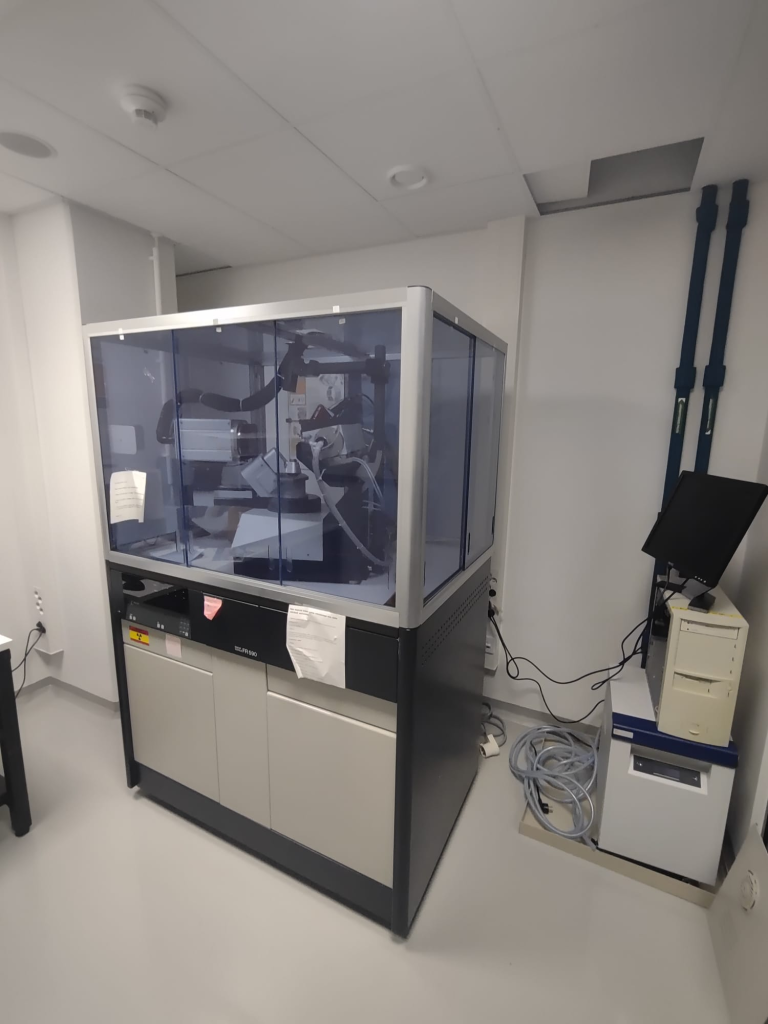
With the device, it is possible to acquire information about substances made into crystalline form in such a way that their three-dimensional structure can be resolved with the help of the diffraction pattern of the sample. The method is especially used to determine the structures of IMC’s organometallic compounds, but the new device is expected to be used by synthetic chemists in the entire Department of Chemistry, as well as more widely by researchers at the University of Turku and Åbo Akademi University. Special thanks to JYU’s Kari Rissanen, Heikki Tuononen, Manu Lahtinen, and Samu Forsblom!
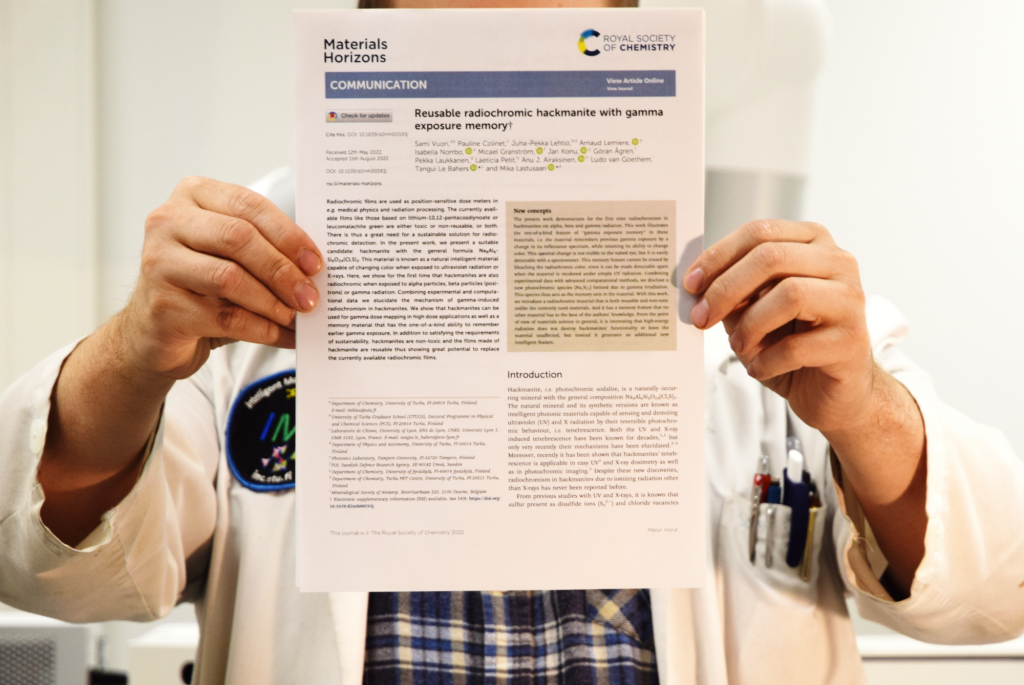
Our newest hackmanite article is out! Sami’s second article concerning gamma radiation effects on hackmanite was published in Materials Horizons (impact factor 15.717) last week, Professor Mika Lastusaari being the corresponding author.

The article shows that gamma radiation induces hackmanite’s typical pink coloration and thus the material can be used to quantify radiation doses, but also that the high-energy radiation deforms the color center so that the reflectance spectrum shows additional signals, meaning that hackmanite can be used to identify the radiation quality. And last but not least: hackmanite also remembers exposure to gamma radiation even if it has been totally bleached to its original white color. This was a very nice and unexpected finding.
The article was an international cooperation of several institutions: University of Turku, University of Lyon (France), Tampere University, Swedish Defence Research Agency FOI, University of Jyväskylä, Turku PET Centre, and Mineralogical Society of Antwerp (Belgium).
The article can be found here:
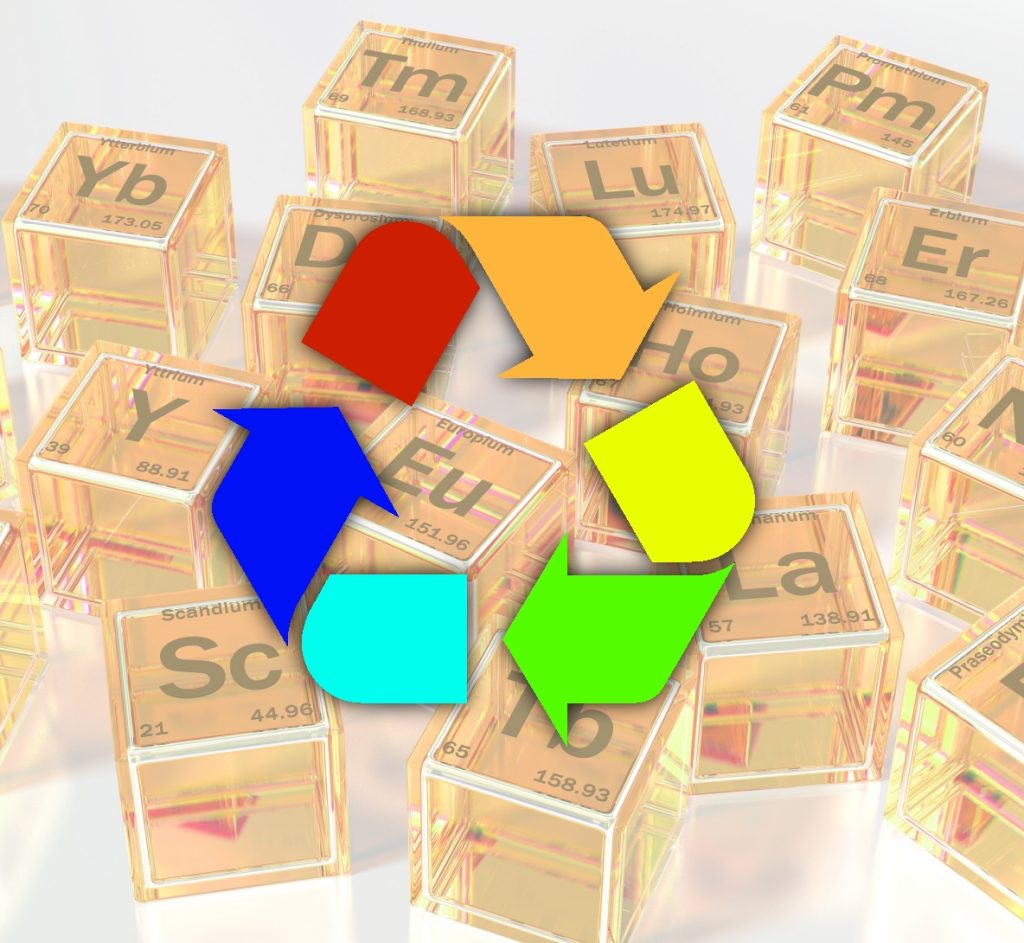
From waste to next generation molecular materials
The joint project of IMC and the University of Jyväskylä received a total of € 500,000 in funding from the Technology Industries of Finland’s Centennial Foundation and the Jane and Aatos Erkko Foundation in The Future Makers funding round. The project is led by Professor Ari Väisänen while Academy Researcher Jani Moilanen and IMC’s Mika Lastusaari lead their sub-projects.
About the project: “The need for critical metals, such as rare earths, will increase in the future. These metals are needed in electric cars, lights, wind turbines and electronic devices, for example. The recycling of rare earths is low due to the lack of efficient and environmentally friendly recycling methods. The project will develop new next-generation materials based on rare earths. The metals to be processed are recovered from industrial waste and by-product streams.“
Read more: https://techfinland100.fi/tulevaisuuden-tekijat-2021-vaisanen/

Our hackmanite research levels up with a collaboration project with European Space Agency (ESA). The agency expressed interest in the color-changing property of hackmanite for the task of bringing various detector materials into space for examination. Hackmanite passed the initial qualifiers, and now the project can start with full power, meaning that… hackmanite has a chance to go into space!

We had the pleasure of having PhD student Pauline Colinet from the University of Lyon in France visit us for a couple of days. Pauline will be having her dissertation defense about computational chemistry early next year and wanted to come here to learn how we make hackmanite and do its measurements. For her part, Pauline showed what the sophisticated batch files of computational chemistry look like and how she commands the massive calculation clusters. We have collaborated a lot with her, and hopefully the collaboration will continue in the future! Splendid couple of day with her!
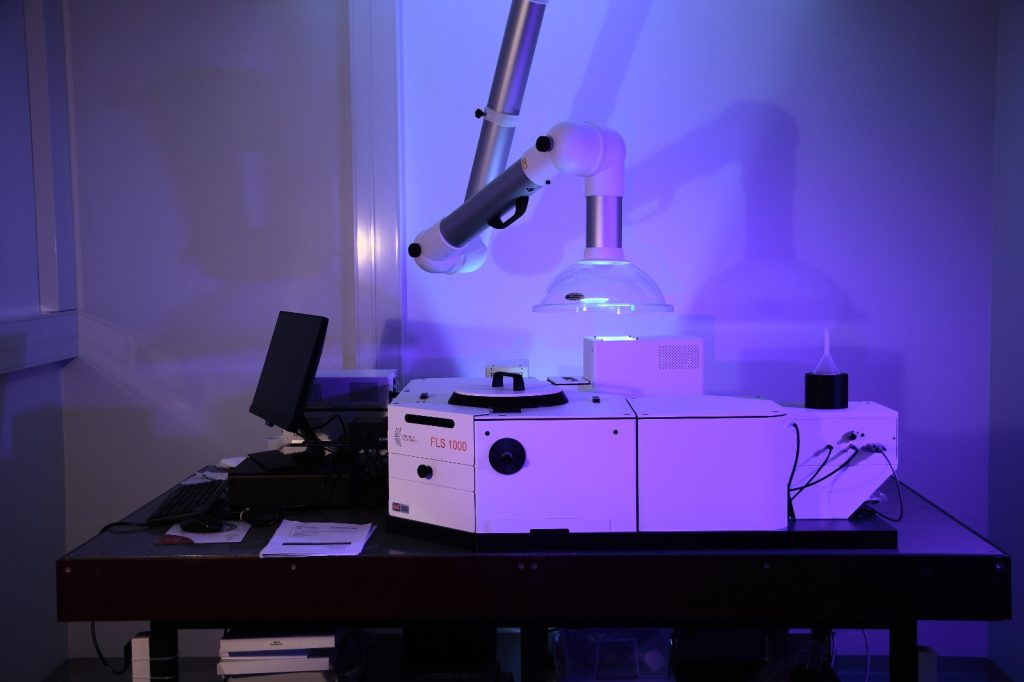
This is our newest instrument, the Edinburgh Instruments FLS 1000 photoluminescence spectrometer. We are very excited for this because it has a wide detection range deep into the infrared range, ability to measure fluorescence lifetimes, quantum yield, time-resolved emission and excitation scans and many other gorgeous features. Edinburgh Instruments’ product engineer Peter Linton was instructing us for three days about how to operate the machine. We also had to give it a traditional Scottish name: it became Skye (thanks to Peter for the name suggestion).
For this great instrument, we thank Prof. Kati Miettunen, Prof. Jarno Salonen, Dr. Taina Laiho, Dr. Heikki Palonen and the whole Finnish Research Infrastructure for Characterization and Aging of Surfaces and Materials for the Local Businesses and Environmental Economy (Casual Bee) team in Turku. See https://sites.utu.fi/casualbee/en/
Some additional photos:
